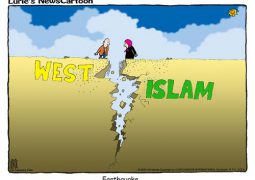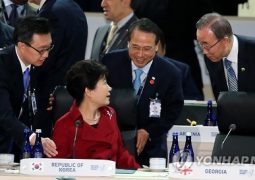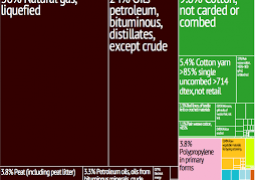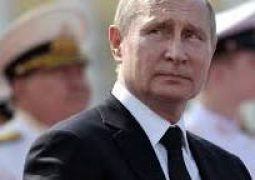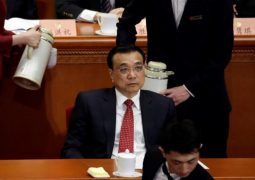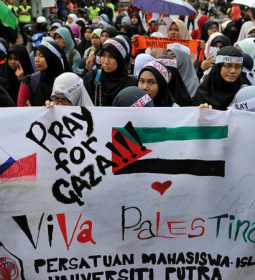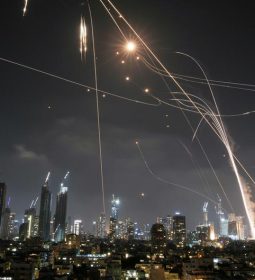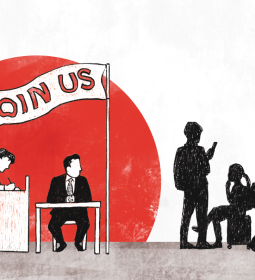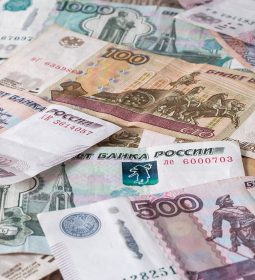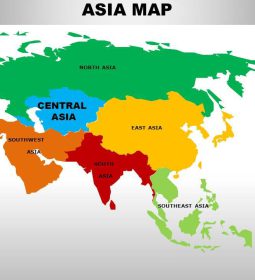Moon-Abe meeting ‘encouraging’ for Seoul-Tokyo ties – senior U.S. diplomat
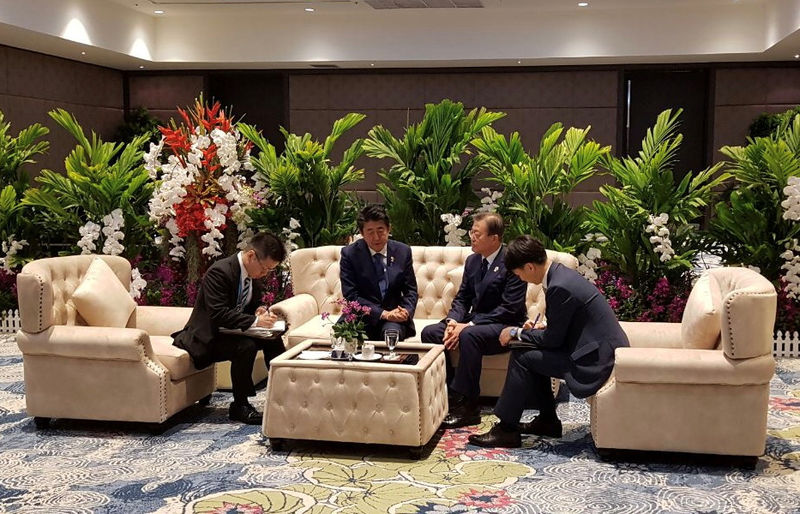
Hyonhee Shin
The United States was very encouraged by a recent meeting between the leaders of South Korea and Japan, a senior U.S. diplomat said on Wednesday, amid heightened tensions that could undercut three-way security cooperation on North Korea.
U.S. Assistant Secretary of State David Stilwell arrived in Seoul on Tuesday at a time when relations between South Korea and Japan, both important U.S. allies, have sunk to their worst state in decades after South Korea’s top court ordered Japanese firms to compensate wartime forced labourers.
But South Korean President Moon Jae-in and Japanese Prime Minister Shinzo Abe had an 11-minute conversation on the sidelines of an international conference on Monday also attended by U.S. officials in Bangkok. It was the first time they had met in more than a year.
“Very encouraged while we were there to note that President Moon and Prime minister Abe had the opportunity to talk,” Stilwell told reporters after meetings with South Korean officials on Wednesday. “That’s an encouraging sign as we watch the relationship improve.”
An intelligence-sharing pact between South Korea and Japan is set to expire this month after Seoul decided not to renew the deal, known as GSOMIA, amidst the spiralling political and trade feud between the two – a decision Washington has criticised.
DECEMBER SUMMIT?
During Stilwell’s visit, South Korea and the United States were expected to discuss how to revive stalled denuclearisation talks between the United States and North Korea.
U.S. and North Korean envoys met in Stockholm last month for the first time since President Donald Trump and North Korean leader Kim Jong Un agreed in June to reopen negotiations after a failed summit in Vietnam in February.
But the meeting in Sweden broke down, with the North’s envoy saying the U.S. side failed to show flexibility.
They could hold another round of talks as soon as mid-November as Kim set sights on a summit with Trump in December, a South Korean lawmaker said on Monday after being briefed by an intelligence agency.
Kim has set an end-of-the-year deadline for denuclearisation talks with Washington.
Late on Wednesday, a senior North Korean diplomat blamed a U.S. joint aerial drill with South Korea planned next month for “throwing cold water” over talks with Washington, the state-run KCNA news agency said. Pyongyang opposes U.S.-South Korean joint military exercises, viewing them as a rehearsal for invasion.
“Our patience is nearing the limits and we won’t be sitting still and watching the United States’ reckless military move,” KCNA quoted Kwon Jong Gun, the senior official at North Korea’s Foreign Ministry, as saying.
In Washington, the Pentagon said military exercises were meant to ensure readiness and interoperability with South Korea.
“We don’t scale or conduct our exercises based off North Korea’s anger,” said Lieutenant Colonel Dave Eastburn, a Pentagon spokesman.
DEFENCE COST-SHARING
South Korea’s Foreign Ministry said Kang explained efforts to craft a “reasonable solution” to the feud with Japan.
“The U.S. side said those efforts are encouraging and agreed that such efforts should continue going forward,” the ministry said in a statement.
Stilwell also met South Korea’s deputy national security adviser Kim Hyun-chong for “detailed, constructive and forward-looking” discussions on the GSOMIA, defence cost-sharing talks and other issues, South Korea’s presidential Blue House said.
As Stilwell’s meetings were under way, a group of activists rallied in front of the ministry building, deriding what they called a U.S. attempt to “squeeze” South Korea over the GSOMIA decision and defence cost-sharing talks.
James DeHart, the U.S. representative in the negotiations, designed to determine how costs are divided for the upkeep of 28,500 U.S. troops in South Korea, was also in Seoul.
Trump has been asking its key Asian ally to pay more for the cost of maintaining U.S. troops.
During their meetings in Seoul, U.S. officials flagged the possibility of discussing whether to reduce U.S. troops by up to 6,000, while demanding South Korea pay $4.7 billion in defence costs, the cable television network TV Chosun reported, quoting a South Korean parliamentary source.
South Korean and U.S. officials signed a deal in February under which Seoul would raise its contribution to just under 1.04 trillion won ($898.42 million), an increase of about $70.3 million. The interim agreement was due to expire in a year.
A survey by the government-affiliated Korea Institute for National Unification released on Wednesday showed that some 96% of South Koreans felt Seoul should not pay more for the U.S. military presence, while 72% backed the decision to end GSOMIA.
Reporting by Hyonhee Shin with additional reporting by Josh Smith, Ju-min Park and Idrees Ali; Editing by Mark Heinrich
- Previous Intra-Afghan peace talks. This time in China. Govt Has Finalized Participant List For China Meeting
- Next Russian Railways pledges to partner in railway project in Mongolia



